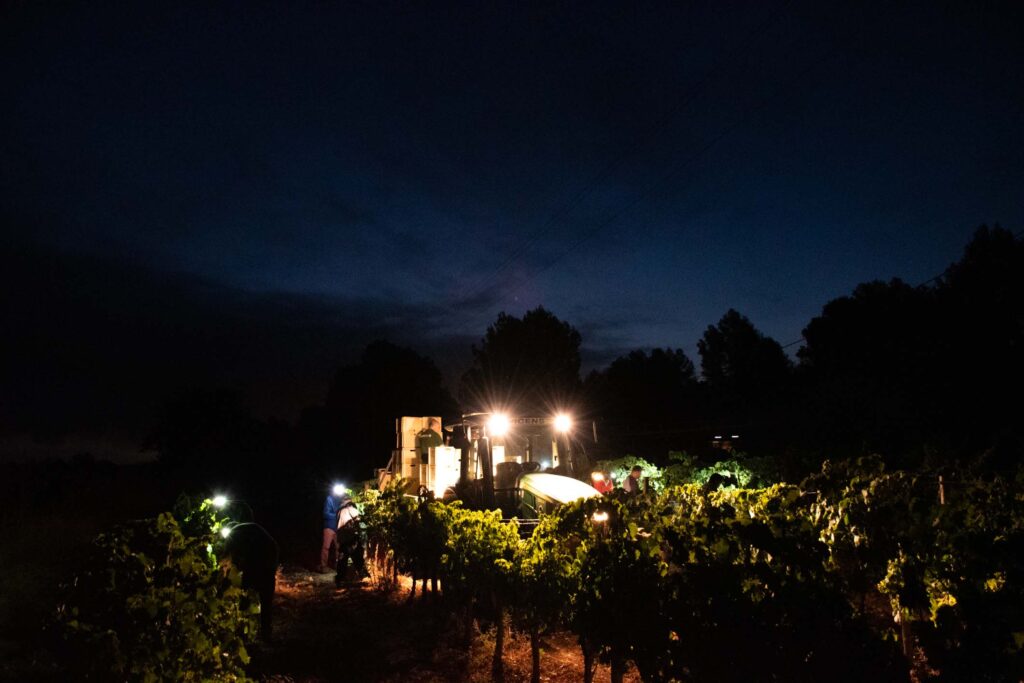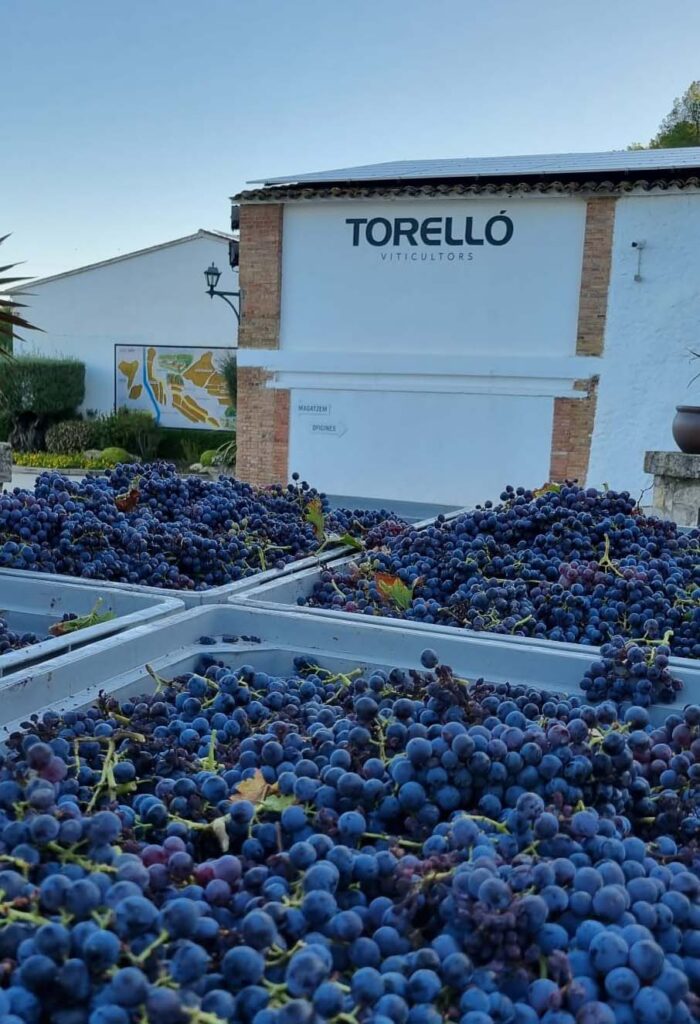2024 Harvest report
The 74th harvest since we started to make the first bottle of sparkling wine in 1951.
In the last few years there have been considerable changes in the climatology of our Penedès region and in all Catalunya: in fact, it is a worldwide problem. The years 2021, 2022 and 2023 especially were extremely dry, and the drought, as well as meaning much less production per hectare, provoked the death of some vines.

First day of the 2024 harvest
A year of rain, but not enough
2024 has been a year when we have had a little more rain than in recent years, 469 litres per square metre (still lower than the average of 530 litres of the last 8 years), very well received but still insufficient. We have been lucky not to have suffered frosts in the spring nor damage from hail in the numerous summer storms. Nor have we had any problem with fungi like mildew. As every year we protected the vines on our estate with electric ‘shepherds’ but we haven’t escaped the attacks by wild boars with which we are used to coexisting. That said, 2024, in the words of our head winegrower Quim Isart, “will be remembered for the visit of the miniscule millimetric green mosquito which we had not seen for many years and which we will have to watch in case it continues in the next few years. It is a mosquito which sucks the nerves of the leaves, drying them and causing them to fall. That reduces the production and the degree of alcohol.” The job of winegrower requires continuous observation of the estate and of every single vine throughout the year.

Grapes of red grenache harvested during the 2024 harvest
Night harvest
The harvest of the 11 varieties of grape on our Can Martí estate started on the very early morning of the 5th of August and finished on the 18th of September. As in the last few years, the harvest started at 04:30 in the morning thus protecting the pickers from the high daytime temperatures. We also aim to save energy as a grape that enters at a lower temperature requires less energy to cool it. Finally, this strategy better preserves the colour and the aromas of the must. In general, the production of grapes on our estate has been similar to that of last year, though the grapes are smaller than other years due to the drought. However, the state of their health is particularly good. According to our oenologist Marc Martin “we have detected higher levels of nitrogen than in other years which favours the fermentation of the must with yeasts native to our estate.”
Paco de la Rosa i Torelló adds that “keeping in mind that there will be musts fermenting until the beginning of October, we can say that it has been a very good campaign, with fresh and aromatic still wines, with typical quality aromas for each variety, and corpinnat base wines with good acidity which will bring aging capacity for our sparkling wines.”










